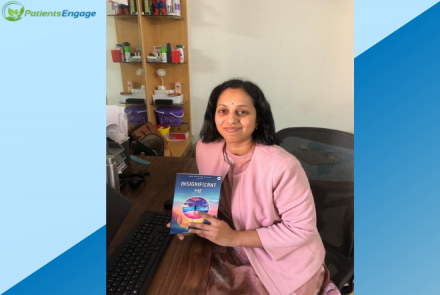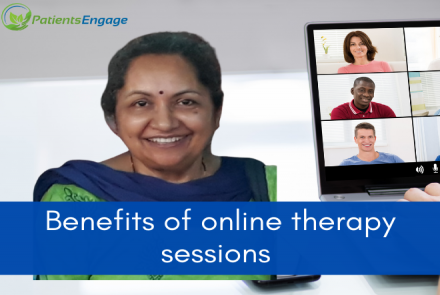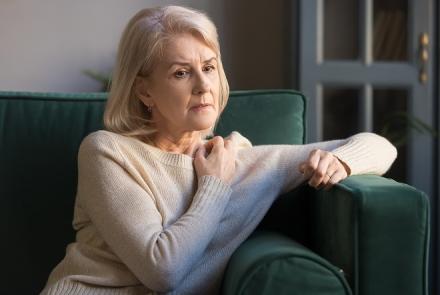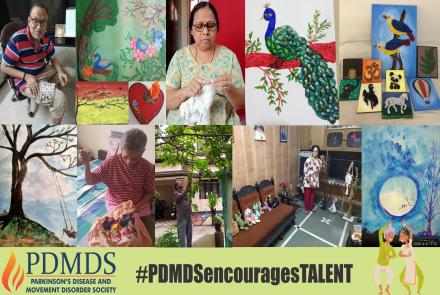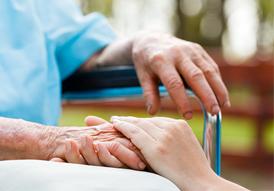
Due to Parkinson’s and its symptoms, PWPs may experience certain emotional and behavioural disturbances that can be difficult to manage. These are a few of them:
Anger & Stubbornness
PWPs may feel angry due to the symptoms of Parkinson’s as well as a sense of dependency that it might generate.
Take for example the difficulty in doing activities that were previously done with ease such as walking, cooking, bathing, and talking etc can bring about a lot of frustration in the person with Parkinson. As a result of these difficulties, they may feel extremely angry and give up hope of improving their condition. They may therefore appear to be stubborn; showing an unwillingness to do things that are beneficial for them such as exercise, walking, consuming medicines etc.
As a caregiver, you always have their best interest in mind and your intention is to get them to do these activities but the manner in which this is communicated is important. For example, forcing them to do so will not work. Instead, try understanding the reasons behind their unwillingness to participate in such activities. Discuss these reasons openly and sensitively with them and try generating inspiration and hope.
Some PWPs may have been extremely independent individuals prior to the diagnosis. They were perhaps the type of people who’d never ask anyone for help in any matter big or small, would always be on their toes completing one work after another, one errand after another. To let go of this sense of independence, even to a small degree and to rely on others for simple activities of daily living can elicit a strong sense of anger and remorse in the patient.
It is therefore important for you to clearly communicate with them and let them know how they are not a liability on you.
As caregivers, it is difficult to deal with that anger but try seeing beneath the anger and understand what is provoking it.
Low Mood
PWPs may feel angry due to the symptoms of Parkinson’s as well as a sense of dependency that it might generate.
Take for example the difficulty in doing activities that were previously done with ease such as walking, cooking, bathing, and talking etc can bring about a lot of frustration in the person with Parkinson. As a result of these difficulties, they may feel extremely angry and give up hope of improving their condition. They may therefore appear to be stubborn; showing an unwillingness to do things that are beneficial for them such as exercise, walking, consuming medicines etc.
As a caregiver, you always have their best interest in mind and your intention is to get them to do these activities but the manner in which this is communicated is important. For example, forcing them to do so will not work. Instead, try understanding the reasons behind their unwillingness to participate in such activities. Discuss these reasons openly and sensitively with them and try generating inspiration and hope.
Some PWPs may have been extremely independent individuals prior to the diagnosis. They were perhaps the type of people who’d never ask anyone for help in any matter big or small, would always be on their toes completing one work after another, one errand after another. To let go of this sense of independence, even to a small degree and to rely on others for simple activities of daily living can elicit a strong sense of anger and remorse in the patient.
It is therefore important for you to clearly communicate with them and let them know how they are not a liability on you.
As caregivers, it is difficult to deal with that anger but try seeing beneath the anger and understand what is provoking it.
Impulsive Behaviour
Impulsive behaviours refer to recurrent behaviours that are uncontrollable, interfere in daily living and the person experiencing it finds him/herself unable to reduce it or stop it despite being aware of its harmful consequences.
Common examples of these behaviours are gambling, shopping, binge eating, hyper sexuality.
Impulsive behaviours are experienced by some, not all PwPs and they usually result from the side effect of Parkinson’s medications.
In many cases, PwPs might be unaware that they are engaging in such behaviours’, therefore family members have to take note of it and bring it to the notice of the doctors. These behaviours’ can be controlled and treated therefore it is important to inform your doctor about it.
Strained Relations
The challenges that come along with Parkinson’s, may affect the relation you share with your loved one, whether you are the patient’s spouse, child or friend. The following is a brief discussion on the possible difficulties that may stem and ways to address them.
Spouse: There are instances in which the strains in the marriage are due to PD.The diagnosis of Parkinson’s brings with it certain challenges in the relationship. Following the illness of your loved one, you may feel that your roles have changed; you now have to assume more responsibilities than you wanted to or you thought you’d ever have to, e.g. managing finances, household duties, children’s school/college demands etc. You may feel that you have to give up on certain things or activities you used to enjoy as a couple. On some days, Parkinson’s may supersede spontaneity.
Due to the symptoms of Parkinson’s, your spouse might feel conscious of his/her appearance and image. He/she may begin to feel overly dependent on you which might frustrate him/her.
These issues, if left unaddressed can create problems in the quality of your marriage.
How you and your partner address and cope with these difficulties is what finally matters. Do not let Parkinson’s dominate your identity as a married couple. You can still enjoy a number of activities together which might just need a little modification to make them simpler. Explore new things that both of you enjoy. Set aside some couple time for you and your partner. Express your feelings, your thoughts, and your concerns with each other in a sensitive non blaming manner. Talk to each other and listen to each other. It is only in the face of challenges, in which relationships become stronger. Be each other’s source of strength. Most importantly, take good care of yourselves, because in doing so, you will actually be helping each other.
Children:To see your parent experience the symptoms of Parkinson’s, can be very distressing and hurtful. Due to these extreme feelings, some might try to do anything and everything for their parent while some might block these feelings and develop a sense of detachment.
However, the key lies in moderation.
Your parent needs you, your support and perhaps your help. Try to be there for him/her. Apart from helping with the requirements of Parkinson’s, try to focus on the little things, the small gestures that would make him/her happy.
Grand Children: Young children in the house might get very disturbed seeing the symptoms of Parkinson’s in their parents or grandparents. Instead of keeping them in the dark and allowing more confusion to rise, its best to explain to them in very simple terms what Parkinson’s is and what behavioural manifestations it entails (tremors, slowness in movement, etc). Of utmost importance is to inform them that Parkinson’s is not life threatening and that you may need their help in certain tasks and activities.
As a family unit, you may feel under the scanner by people who stare at your loved one but bear in mind that generally people stare out of curiosity and unawareness rather than rudeness. Therefore help others to better understand Parkinson’s and create more awareness about it. This way, they will be more empathic and sensitive around you and other people with the illness.
Next Up: Caring for the caregiver!

